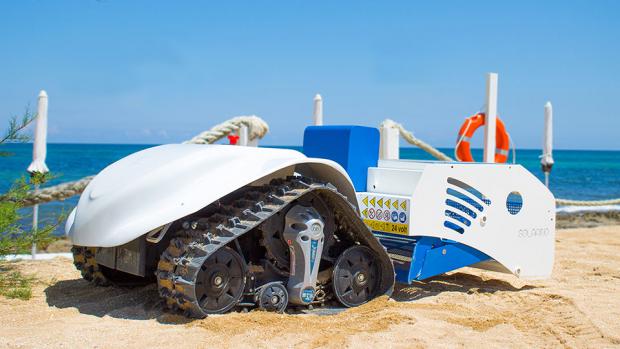
Breaking News
 The Consequences of Avoiding AI
The Consequences of Avoiding AI
 Scientists Want to Use Self-Amplifying mRNA to Vaccinate Those Who Don't Want Vaccinated
Scientists Want to Use Self-Amplifying mRNA to Vaccinate Those Who Don't Want Vaccinated
 RITTER: If I were the decision-maker in Iran, USS Abraham Lincoln would already be sunk
RITTER: If I were the decision-maker in Iran, USS Abraham Lincoln would already be sunk
 End the Department of Education? The US House of Representatives Votes to Fund It in Full.
End the Department of Education? The US House of Representatives Votes to Fund It in Full.
Top Tech News
 How underwater 3D printing could soon transform maritime construction
How underwater 3D printing could soon transform maritime construction
 Smart soldering iron packs a camera to show you what you're doing
Smart soldering iron packs a camera to show you what you're doing
 Look, no hands: Flying umbrella follows user through the rain
Look, no hands: Flying umbrella follows user through the rain
 Critical Linux Warning: 800,000 Devices Are EXPOSED
Critical Linux Warning: 800,000 Devices Are EXPOSED
 'Brave New World': IVF Company's Eugenics Tool Lets Couples Pick 'Best' Baby, Di
'Brave New World': IVF Company's Eugenics Tool Lets Couples Pick 'Best' Baby, Di
 The smartphone just fired a warning shot at the camera industry.
The smartphone just fired a warning shot at the camera industry.
 A revolutionary breakthrough in dental science is changing how we fight tooth decay
A revolutionary breakthrough in dental science is changing how we fight tooth decay
 Docan Energy "Panda": 32kWh for $2,530!
Docan Energy "Panda": 32kWh for $2,530!
 Rugged phone with multi-day battery life doubles as a 1080p projector
Rugged phone with multi-day battery life doubles as a 1080p projector
 4 Sisters Invent Electric Tractor with Mom and Dad and it's Selling in 5 Countries
4 Sisters Invent Electric Tractor with Mom and Dad and it's Selling in 5 Countries
New Solar-Powered Beach-Combing Robot Filters Even Tiny Plastic 30x Faster Than Humans

The electric-powered, sand-sifting BeBot can clean up to 3,000 square meters, or 33,000 square feet, of beach per hour, making it 20-30x more effective than collecting trash by hand.
The machine is agile and easy to maneuver, a clear differentiator from existing options which tend to be derived from retired agricultural equipment powered by gas, making them less-suited to delicate beach work.
It specifically excels at removing small pieces of plastic and other trash that are notoriously difficult to clean by hand, using small 1 cm x 1 cm sifting grids to separate these items from the sand.
A pair of triangular tracks gives the BeBot a smaller footprint, while a shallower cleaning depth of 10 cm effectively removes common beach trash while avoiding disruptions to any nearby habitats or animals, providing a more effective and sustainable approach to cleanups.
A remote-controlled robot, the beach-cleaner can be operated from up to 950 feet away.
BeBot comes out of a marine-technology firm called Polaru Marine, that among many other projects such as robotics, specializes in building aluminum marinas. They construct floating solar panel banks, and other cool aqua-tech like the "mooring star," which is essentially a giant addition sign that allows nature parks to greatly increase their boat mooring potential whilst protecting shorelines.



